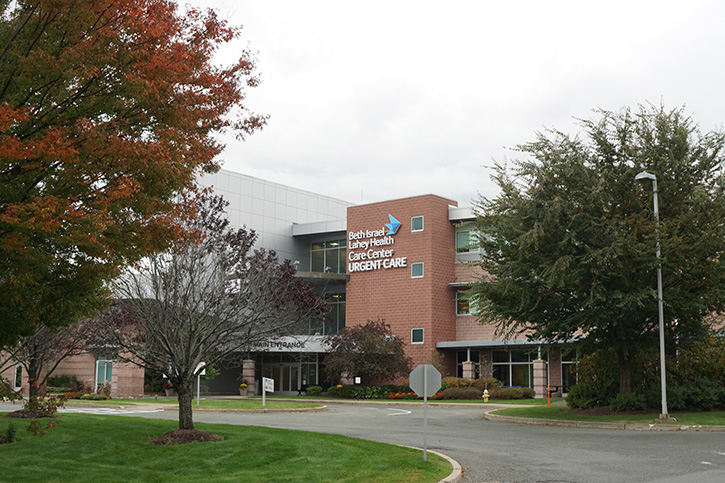Heart Scan
Helping you understand your risk for heart disease
Heart Scan at Beverly Hospital
Getting an accurate, timely diagnosis for a heart condition is critical to your cardiovascular treatment plan. Your cardiologist can use a heart scan to:
- Determine the extent of damage to the heart muscle after a heart attack
- Identify abnormal blood flow to the heart
- Measure heart function
A heart scan is a type of nuclear imaging. A heart scan is also sometimes called a myocardial perfusion single photon emission computed tomography (SPECT) study or a cardiac stress-rest test.
This is a two-part test done over a two-day period.
What to Expect
Our Nuclear Medicine technologists will talk to you in detail about what you can expect before, during and after the procedure and will answer any questions you may have. Learn more about what to expect if you need to undergo a heart scan.
The first appointment involves a rest test. You should not have any caffeine before your scheduled test time. If you have questions about your medications, please check with your doctor before your test.
The appointment takes about two hours. When you arrive, a member of the testing team will inject you with a radiotracer. You’ll then wait about 45 minutes for the radiotracer to take effect. Then, you’ll undergo the scan. During the scan, you will lay flat and still on a table. The scan itself takes about 20-25 minutes.
The second appointment is the stress portion of the test. You should not eat, drink or smoke after midnight the night before the test. If you have questions about taking your medications, please check with your doctor before the test.
The appointment takes about two hours and consists of a stress test and imaging. A member of your testing team will insert an IV line. Then, you’ll walk on a treadmill. Your cardiologist and an electrocardiogram (EKG) technologist will monitor you during this time.
If you have limited exercise capability, your testing team may use a drug that will help you exercise. Your testing team will give you a radiotracer injection while you’re on the treadmill. Then, you’ll wait about 30 minutes before your imaging scan begins. During the scan, you will lay flat and still on a table. The scan itself takes about 25 minutes.
A radiotracer is a compound made of a radioactive isotope and a pharmaceutical agent. The radioactive isotope releases energy detected by a special camera called a gamma camera. This camera produces digital signals, creating an image that is stored by a computer. The image will show doctors any area with abnormal blood flow, which may indicate a problem.
Be sure to notify the technologist if there is any chance you may be pregnant. The radiotracer is unlikely to cause side effects or allergic reactions.
After the test, you can return to your regular activities right away.
Your ordering physician will receive the results in 24-48 hours. It is important to discuss the results of your scan with your doctor.
Conditions We Treat
- Abdominal aortic aneurysm
- Atrial fibrillation
- Cardiac arrhythmias
- Carotid artery disease
- Congestive heart failure
- Coronary artery disease
- High blood pressure
- High cholesterol
- Peripheral arterial disease
- Renal arterial disease
- Valvular heart disease
Featured Location

Services & Specialties
When necessary, your heart specialist may work with other specialists at Beverly Hospital to make sure you have the care you need to feel your very best.

